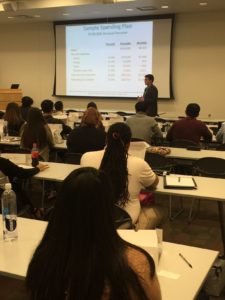When THC tests fail, cough syrup warning, the hep A fight goes on, and more
16 Oct 2019
Posted by Andrew Kantor
This Georgia pharmacist’s license was suspended
A man we’ll call Michael had spent a decade running a retail pharmacy that had grown to administer as many as 600 flu shots per season. The hours were long. The pressure was high. He lost a loved one and needed to cope with growing anxiety and depression. He began to forge prescriptions for controlled substances. A year later, his license was suspended.
Michael was referred to PharmAssist, a volunteer-run program by the Georgia Pharmacy Foundation that provided him with free access to peer support, which helped him fight his inclination to medicate. His license has been reinstated and he now works in a pharmacy job helping others. Most importantly, Michael knows he is not alone. To read his full story, click here.
Check your mailbox!
The Georgia Pharmacy Foundation is coming to your mailbox this week! Please donate to make a difference in the lives of pharmacists and people across Georgia today. The foundation needs your support to raise an additional $10,000 by the end of the year. Click here to make a tax-deductible donation.
Foundation teaching
Speaking of the foundation, here are some pics from the Lunch & Learn at PCOM from last week, when the foundation sponsored a seminar on managing finances for future pharmacists:


Georgia winning (Hep A losing)
Keep your fingers crossed: So far, despite outbreaks on both sides of the state, Georgia has kept its cases of hepatitis A to a minimum. The AJC has the story of how.
THC tests failing
Last week we told you about the Clayton County assistant principal who took CBD oil but tested positive for THC.
Well, it seems like he’s not the only one. “CBD or THC? Common Drug Test Can’t Tell the Difference,” explains the New York Times.
According to the 2012 journal article, [the particular testing process] was unable to discern between CBD and THC. If a person who used only CBD were given a drug test that employed this device, method and chemical, the results would falsely report the presence of THC.
Cancer drug rationing
What happens when there’s one drug is a mainstay for fighting pediatric cancer, but it’s just not profitable enough for more than one company to make? That’s the case of vincristine.
Until earlier this year, there were two suppliers of vincristine: Pfizer and Teva Pharmaceutical Industries. In July, Teva made a “business decision to discontinue the drug,” according to the Food and Drug Administration. Since then, Pfizer has been the sole supplier, and the company lately has experienced manufacturing troubles.
Cough syrup warning
If you sell Rompe Pecho cough syrup, stop, says the FDA. It’s not safe. Dispose of it and tell your patients to do the same.

Medicare patients worrying
If your Medicare patients start seeming a bit more concerned, here’s why: The price-comparison tool has been … altered, making it a lot harder for seniors to choose a plan that has the prescription coverage they want.
[T]he plan finder can no longer add up and sort through the prescription costs plus monthly premiums and any deductibles for all those plans. A mere human can try, but it is a cumbersome process fraught with pitfalls. One plan might have the lowest premium but not the lowest drug prices. Another could exclude a plan’s preferred pharmacy that offers lower prescription prices.
Bacteria cooperating
Evolution works in mysterious ways. For bacteria, it seems it’s not always about competition — they learn to cooperate instead. And that can have implications for fighting antibiotic resistance.


